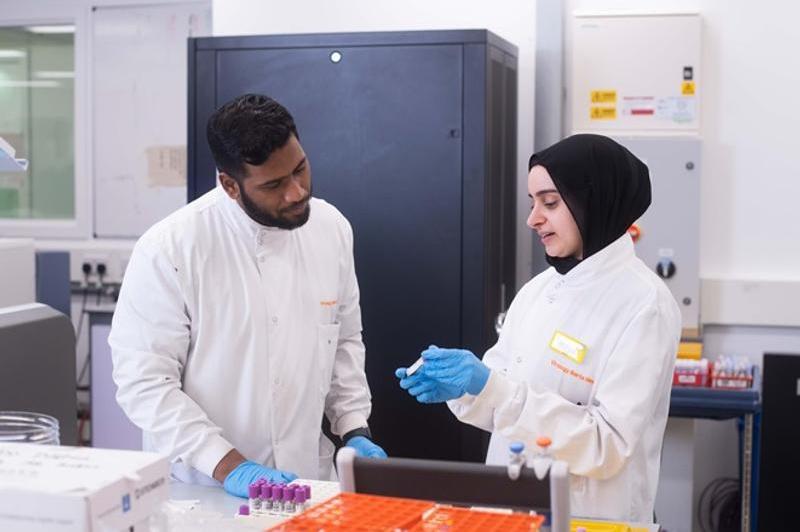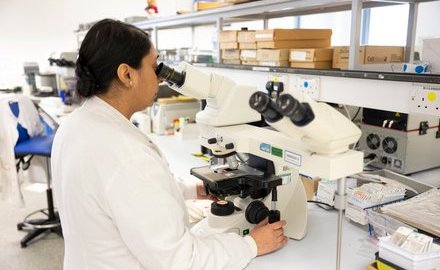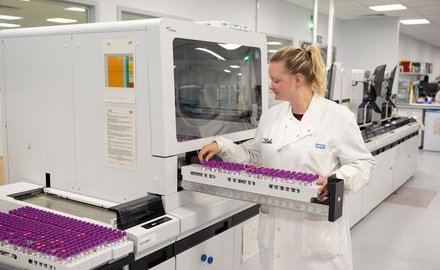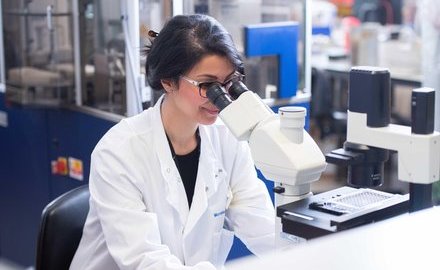Become a clinical immunologist
Only in the 20th century were scientists able to understand that the immune system was the link between Jenner’s 18th century cowpox vaccination and organ transplantation, autoimmunity and allergies. Clinical immunology has since evolved into the branch of medicine concerned with all activities of the body’s defences.
Immunology is a clinical and laboratory discipline dealing with the study, diagnosis and management of patients with diseases resulting from disordered immune systems, and conditions in which immunological treatment forms an important part of therapy and/or prevention.
Most immunologists have a dual role as both a pathologist in the laboratory and a clinician. Some work primarily as academics pursuing research careers, while others may be scientists who do not see patients directly. In most NHS services, the responsibilities of laboratory leadership and direction, supervision, quality management, clinical interpretation and clinical liaison rest with the immunologist.
Clinical immunologists are doctors who specialise in diagnosing and treating patients with inherited or acquired failures of the immune systems that lead to infections and autoimmune complications (immunodeficiency disorders) and autoimmune diseases and vasculitis where the body harms itself. They also specialise in auto inflammatory diseases (where people cannot control inflammation) and allergic diseases (like anaphylaxis, where an abnormal immune response to an innocuous substance or food can kill).
Paediatric clinical immunologists often also look after patients with infectious diseases, such as human immunodeficiency virus (HIV) and tuberculosis.
Immunological research is central to our understanding of many diseases, as most involve some immunological mechanisms. Ongoing research can lead to breakthroughs in immunotherapy; for example, manipulating the immune system to treat cancer, and developing vaccines for emerging pathogens, such as Ebola.
What will my working environment be like?
As an immunologist, your core work is the clinical management of patients. You’ll usually be based in outpatient clinics, managing patients with severe allergies, immune deficiencies or autoimmune diseases. Some immunologists may be involved in bone marrow transplantation, gene therapy or use of antibodies or immunoglobulin in rare diseases, while some also run joint paediatric clinics for children with immunodeficiency disorders and allergies.
Immunologists supervise diagnostic and research laboratories, and work closely with other doctors treating diseases where the immune system is involved. They may therefore be asked for advice on diagnosis and management by colleagues working in other specialties, such as rheumatology, haematology or general practice.
An immunologists’ management of the laboratory is key to investigating, diagnosing and monitoring a broad range of immunological diseases. They have a wide range of duties including working closely with hospital and general practice colleagues, interpreting and validating test results, and ensuring the quality of their service.
What skills do I need?
- Excellent communication – you’ll work with colleagues from different specialties and will need to explain complex treatment plans to patients.
- The ability to organise and prioritise your workload – you’ll need to balance multiple demands, including time in clinics, laboratory work and offering advice in team meetings.
- An analytical and logical way of thinking – you’ll be required to analyse and interpret data and immunological research.
How will I train?
To become a medical immunologist, you’ll need to complete:
- undergraduate training at medical school
- the UK Foundation Training Programme or equivalent
- Core Medical Training (CMT)
- specialty training in medical immunology.
Learn more about training to be an immunologist.
Explore more careers




